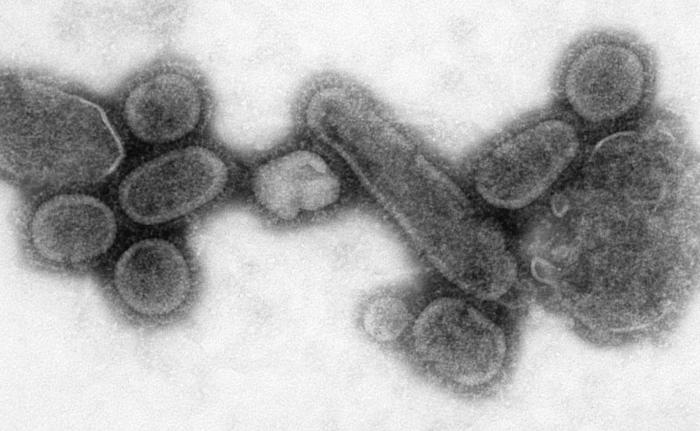
Outbreak at a glance From 22 March to 3 April 2022, two laboratory-confirmed cases of Middle East respiratory syndrome coronavirus (MERS-CoV), including one death, were reported to the WHO by the National IHR Focal Point of Qatar. Both cases had frequent close contact with dromedary camels and consumption of their raw milk in the 14 days prior to the onset of symptoms. The Qatar Ministry of Public Health immediately initiated case investigation and contact tracing.

Influenza A viruses are believed to spread between humans through contact, large respiratory droplets and small particle droplet nuclei (aerosols), but the relative importance of each of these modes of transmission is unclear.

Lack of human data on influenza virus aerosol shedding fuels debate over the importance of airborne transmission.

A study today in Emerging Infectious Diseases shows that states with bigger investments in public health tracked more foodborne disease outbreaks between 2009 and 2018, suggesting that those with lower investments may miss critical outbreaks.

The National Institute of Allergy and Infectious Diseases (NIAID), part of the National Institutes of Health, has announced three awards to establish a network of Coccidioidomycosis Collaborative Research Centers to conduct research on coccidioidomycosis, also known as Valley Fever. These multi-disciplinary research teams will collaborate to investigate potential diagnostics, therapeutics, and vaccines for this fungal disease.

The Biden Administration observed a grim milestone today as the country topped 1 million COVID-19 deaths.

A new study published today in the American Journal of Infection Control (AJIC), suggests that health care facilities can significantly reduce the incidence of hospital-onset Clostridioides difficile infection (HO-CDI) by establishing interprofessional teams to implement selected, evidence-based infection-prevention interventions.

Portugal's new framework for the prevention and control of legionella or legionellosis diseases is compatible with the flexibility allowed by the European Union's revised tap water rules, a Portuguese health expert has told EURACTIV.com .

A study conducted at hospitals in Michigan highlights the role that pharmacists can play in improving antimicrobial prescribing during transitions of care.

Several earlier studies have indicated a favorable effect of flu shots on the risk of infection with the severe acute respiratory syndrome coronavirus 2 (SARS-CoV-2), as well as on the risk of symptomatic and severe coronavirus disease 2019 (COVID-19) after infection. A new preprint reports the effectiveness of influenza vaccination in this light.







